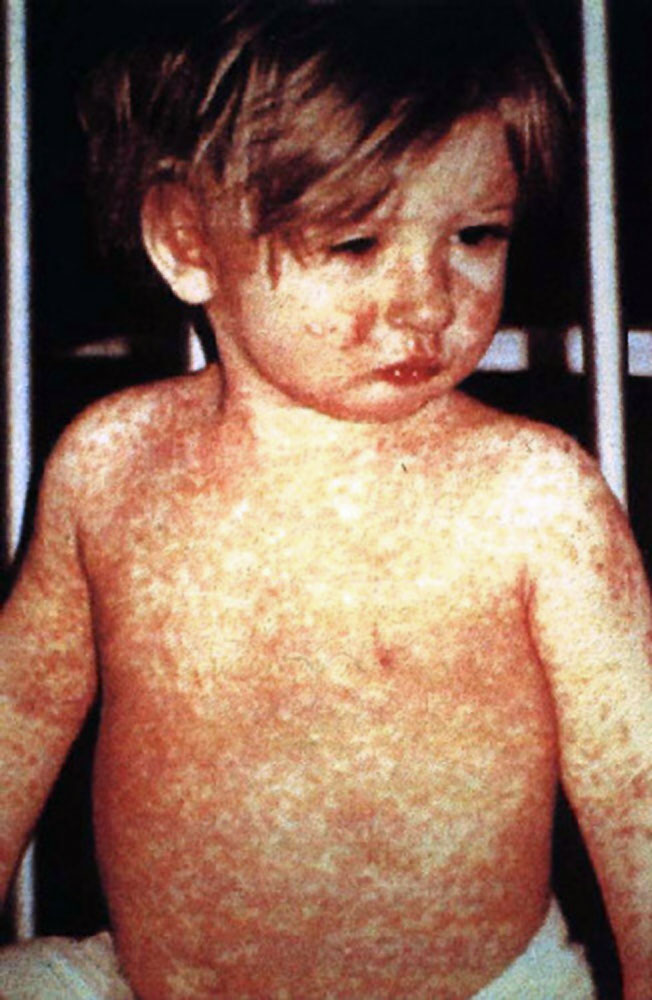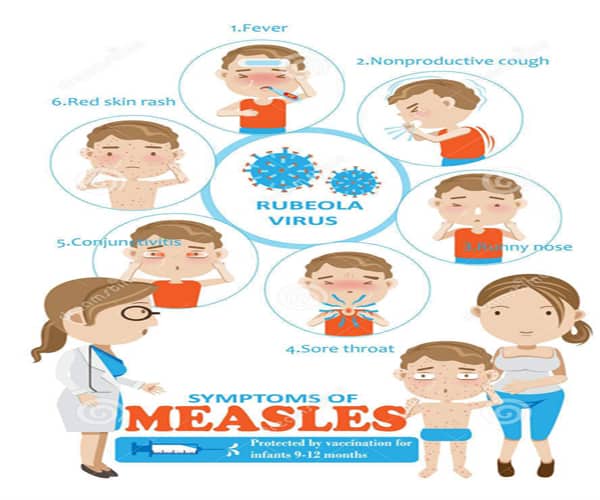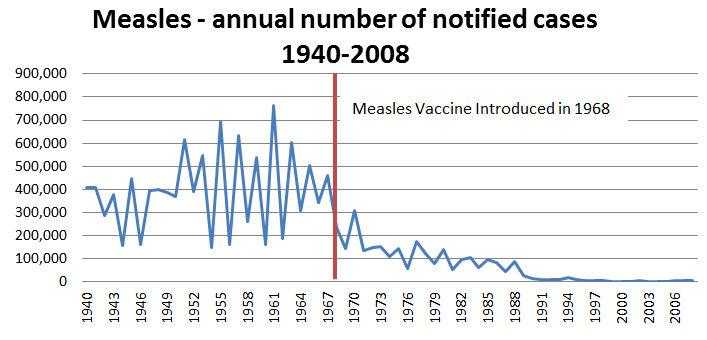 Measles or rubeola, is a highly contagious viral infection. It still is one of the leading causes for death in children, globally.
Measles or rubeola, is a highly contagious viral infection. It still is one of the leading causes for death in children, globally.
What is Measles
It is a viral disease affecting the respiratory system. It is an airborne disease, spreads through air.
Cause and Transmission
it is caused by measles virus. It belongs to genus Morbillivirus of the family Paramyxoviridae. It spreads through air. It spreads through –
- Coughing and sneezing
- Close personal contact
- Direct contact with infected nasal or throat secretions
- Touching a surface that has infected droplets of mucus and then putting fingers into the mouth, or rubbing the nose or eyes
- The virus remains active and contagious in the air or on infected surfaces for up to 2 hours. It can be transmitted by an infected person from 4 days prior to the onset of the rash to 4 days after the rash erupts.
Risks
unvaccinated children are at a high risk. Vitamin-A deficiency is also a risk factor for measles. Children with too little vitamin A in their diets have a higher risk of catching the virus.
Sign and Symptoms
the symptoms appear in 10-15 days after exposure to the virus. The symptoms include the 3 C’s
- Cough
- coryza (head cold, fever, sneezing)
- conjunctivitis (red eyes)
- photophobia (light sensitive)
- high fever
- widespread skin rash
- white spots in mouth
Statistics
According to WHO, In 2015, there were 134 200 measles deaths globally – about 367 deaths every day or 15 deaths every hour. Of the 114,900 global deaths related to measles in 2014, the World Health Organization (WHO) reported that most of the victims were under the age of 5.
